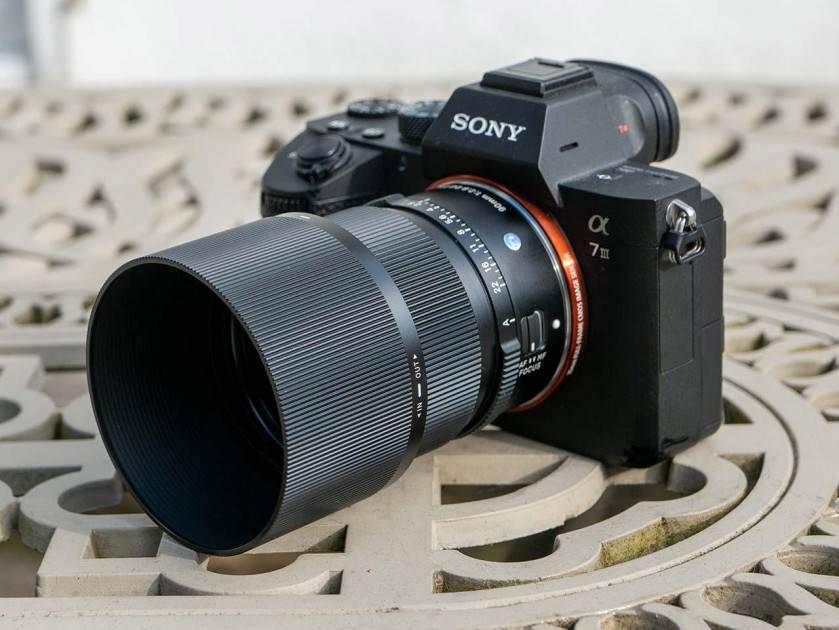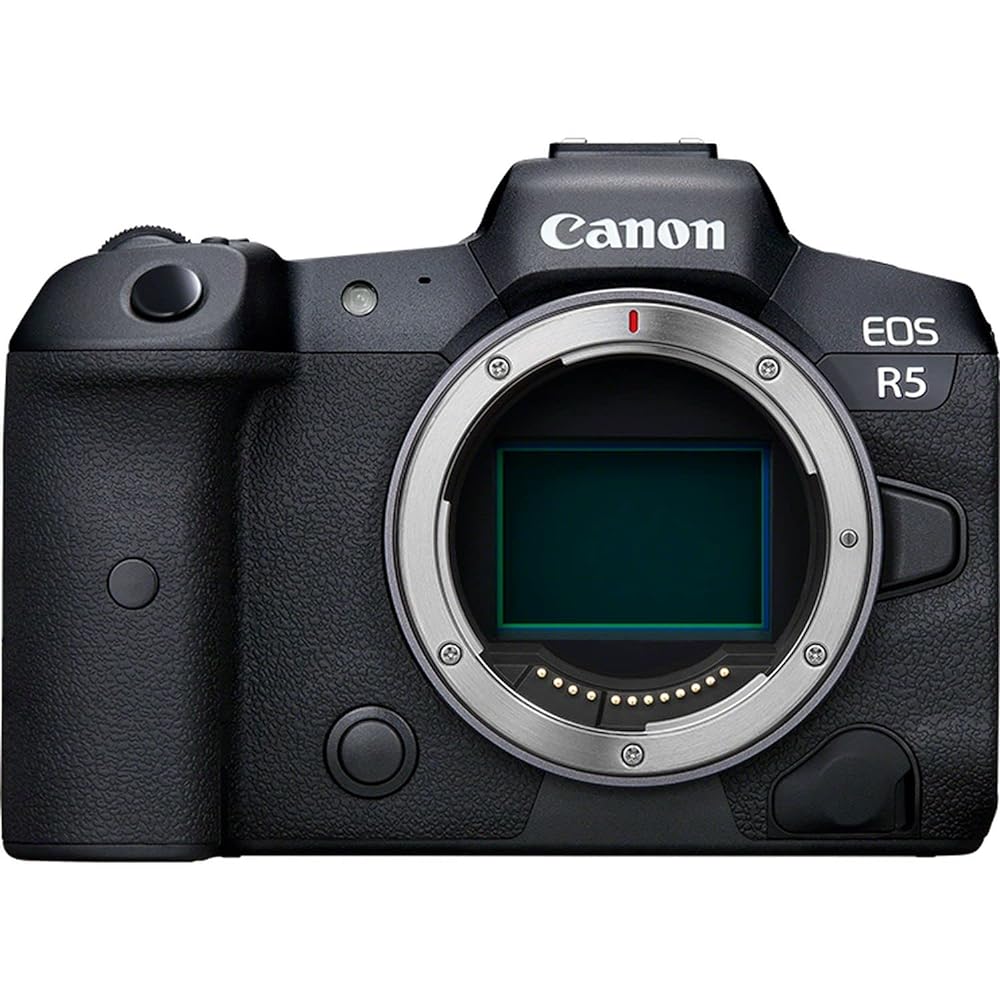Introduction
The Fujifilm GF 35-70mm F4.5-5.6 WR is the fourth zoom lens designed specifically for Fujifilm GFX medium-format mirrorless cameras.
This standard zoom offers a focal range of 28-55mm in 35mm full-frame terms, with an aperture range of f/4.5-f/32.
It features a very compact, retractable design with a collapsed length of under 7.4cm / 3″.
Optically, it’s comprised of 11 elements in 9 groups including one aspherical element and two ED elements, with 9 rounded aperture blades.
It has a high-speed stepping AF motor that allows it to focus in less than 0.13 seconds, a hydrophobic fluorine coating on the front element to repel moisture, and a dust-, freeze- and weather-sealed physical construction that enables it to function in temperatures as low as -10°C (14°F) .
The Fuji 35-70mm is also able to focus as close as 35cm / 13.8″ and it takes 62mm filters.
The Fujifilm GF 35-70mm F4.5-5.6 WR is priced at £849 / $999 and will be available from October 2021.
Ease of Use
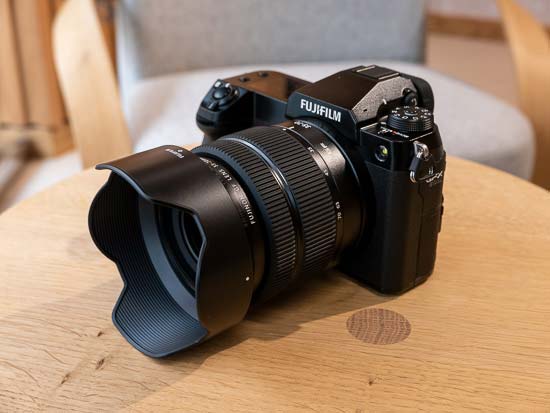
With a maximum diameter of 84.9mm and a maximum length of 102mm (when zoomed out to 35mm), the Fujifilm GF 35-70mm F4.5-5.6 WR is a wide-normal zoom lens that’s well-suited to the GFX 50S II camera that we tested it with.
Weighing in at 390g, it’s an incredibly light lens for medium-format, proving to be very well-balanced on the GFX 50S II.
It’s also very compact too, thanks to its retractable design. When collapsed, it measures just 73.9mm in length.
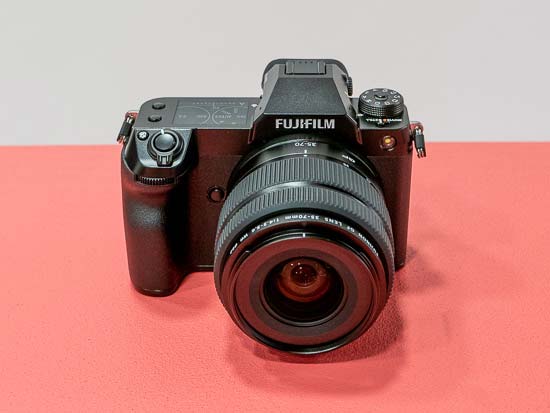
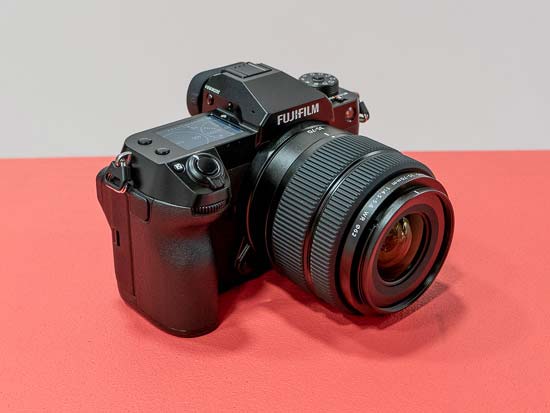
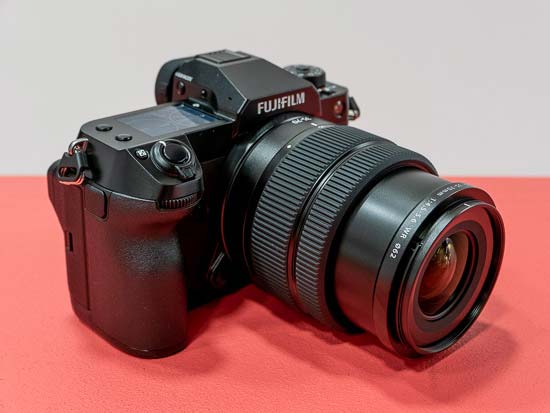
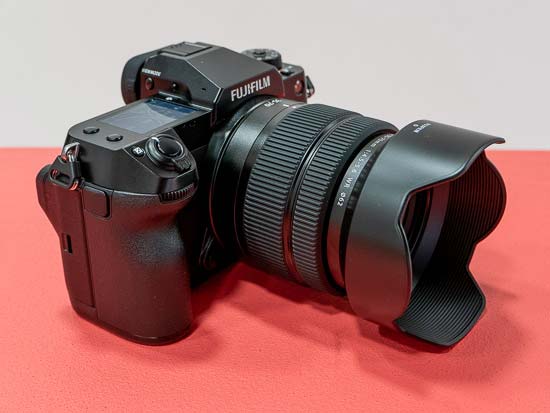
By way of comparison, the similar GF 32-64mm f4 R LM WR measures 92.6mm x 145.5mm and weighs in at 875g, making it much bigger and over twice as heavy as the new 35-70mm.
As with the other GF lenses that we’ve reviewed, the Fujifilm GF 35-70mm F4.5-5.6 WR boasts excellent build quality. The lens is dust, freeze and moisture resistant and it features a metal bayonet.
The Fujifilm GF 35-70mm F4.5-5.6 WR lens is comprised of 11 elements in 9 groups including one aspherical element and two ED elements. It accepts economical 62mm filters via metal threads.
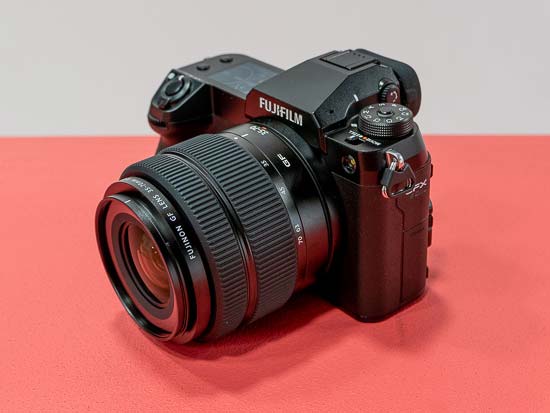
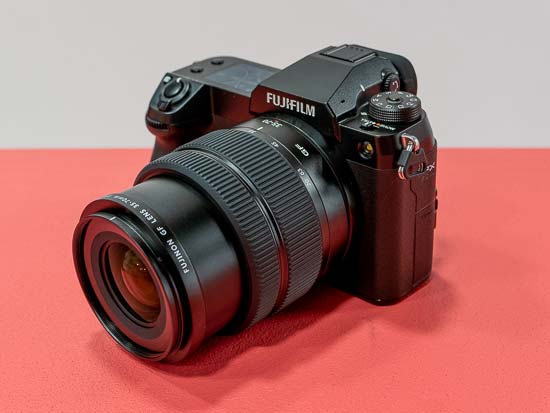
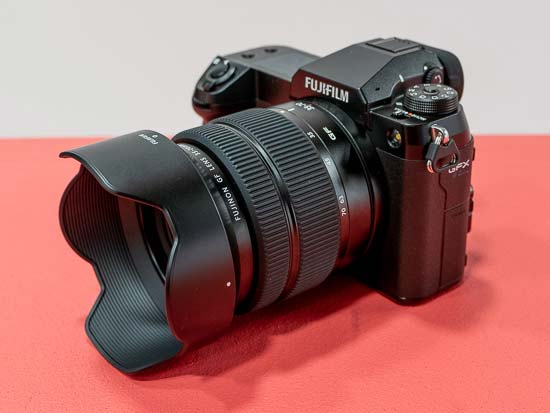
There is no built-in optical image stabilisation in this lens, instead relying on the GFX camera body to provide it.
The focus ring is just about wide enough, smooth and beautifully well-damped in action without being loose, and has a ridged, rubberised grip band. There are no “hard stops” at either end of the 35cm-infinity focus range though. It has a large rotation angle which enables precise focusing and moves smoothly without any play.
Two different focusing aids are provided – auto magnification and focus peaking. In conjunction with the GFX 50S II’s high-resolution electronic viewfinder, we found it very easy to accurately determine critical sharpness.
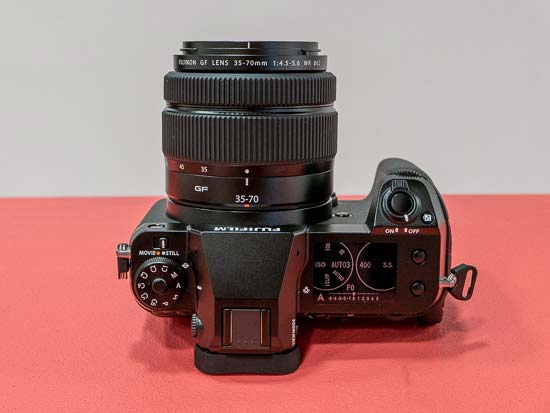
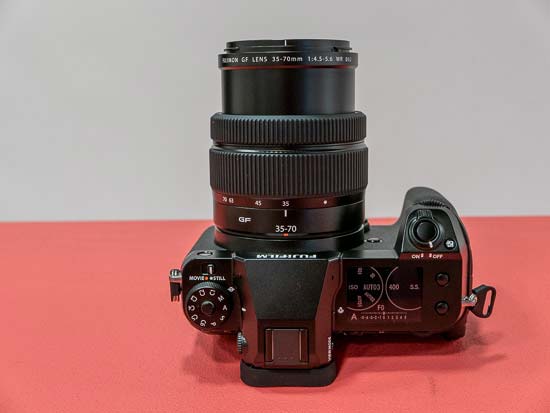
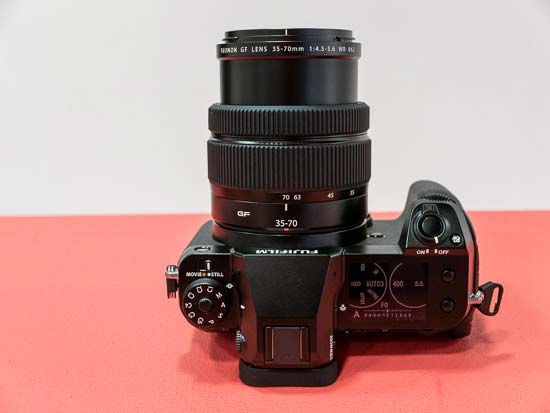
When it comes to auto-focusing, the Fujifilm GF 35-70mm F4.5-5.6 WR is a very quiet performer on the Fujifilm GFX 50S II that we tested it with thanks to the stepping motor, and it’s also pretty fast too, taking about 0.25 second to lock onto the subject in good light (it’s even quicker at 0.13sec in the Phase Detection AF mode on the GFX 100S). We didn’t experience too much “hunting” either, with the lens accurately focusing almost all of the time.
Focusing is usefully internal and manual focusing is possible when set via the camera body. Full-time manual focus override is available at any time simply by rotating the focus ring, if specified in the menu system, or you set the focusing switch on the camera (if available) to M, C or S.
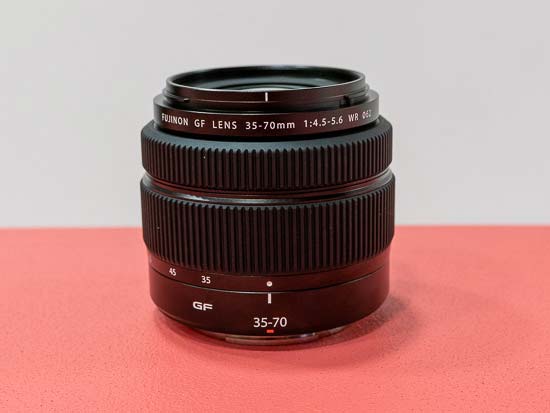
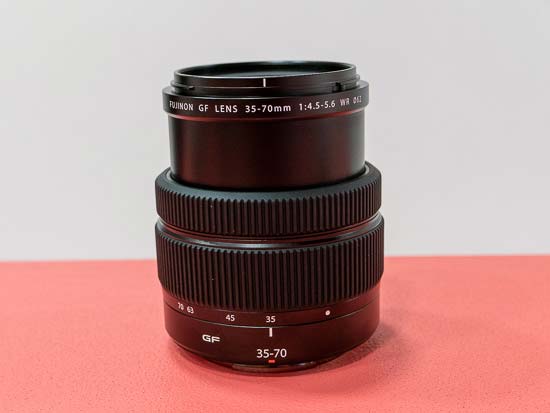
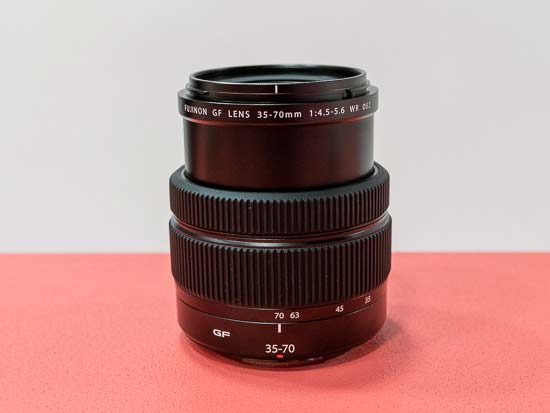
Unlike most Fujifilm lenses, the GF 35-70mm F4.5-5.6 WR lens doesn’t have a traditional aperture ring on the lens barrel, one of the main concessions to enable it to be so compact. Instead you have to change the aperture via the camera body, with the aperture displayed in the viewfinder or on the LCD screen.
A soft cloth bag and a large plastic petal-shaped lens hood are supplied in the box.
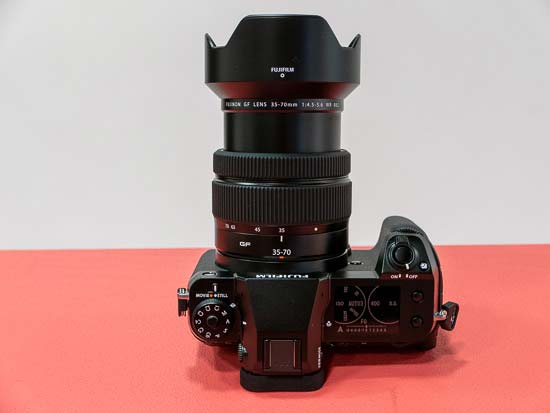
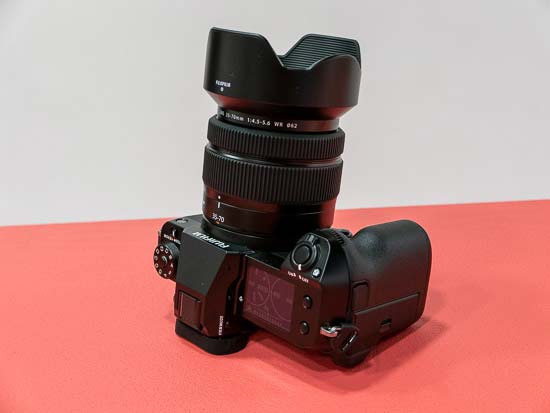
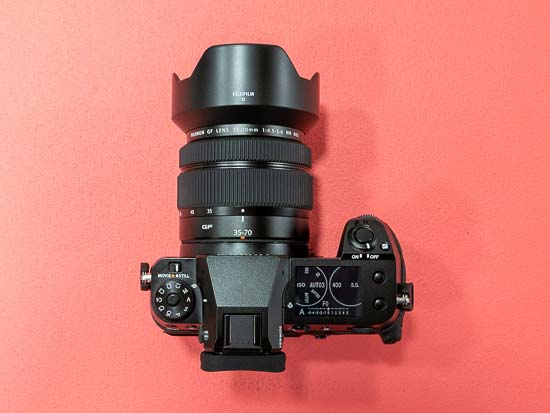
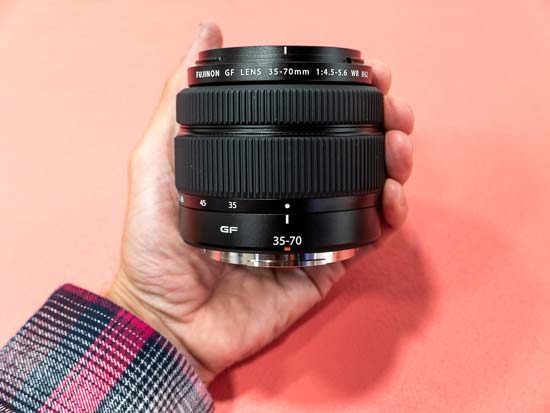
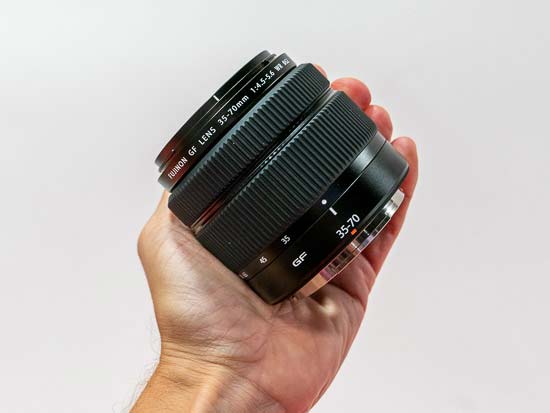
Focal Range
The 35mm focal length provides an angle of view of 76° and the 70mm is equal to 42.7° degrees on a 35mm full-frame camera.
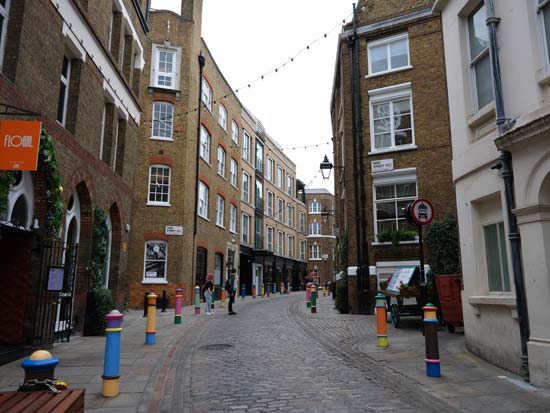
35mm
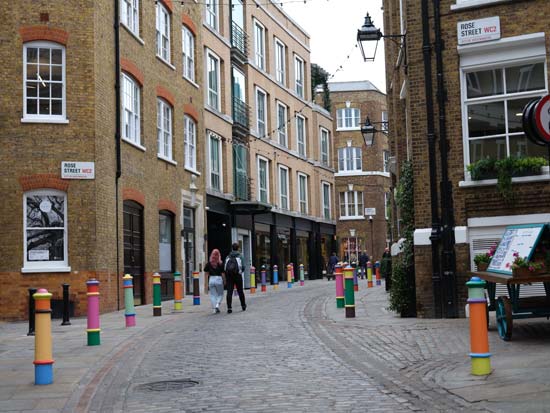
70mm
Chromatic Aberrations
Chromatic aberrations, typically seen as blue or purple fringes along contrasty edges, were not very apparent in our test shots, only appearing in very high contrast areas. The examples below show the worst-case scenario.
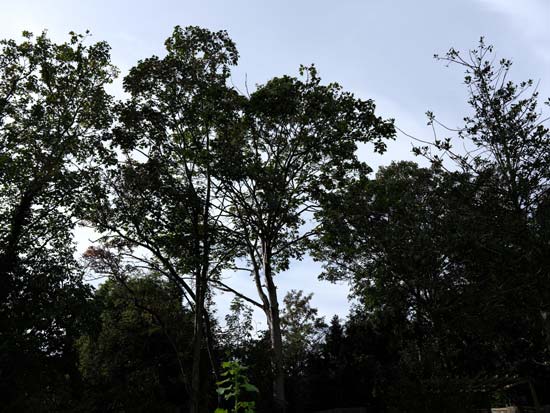
35mm
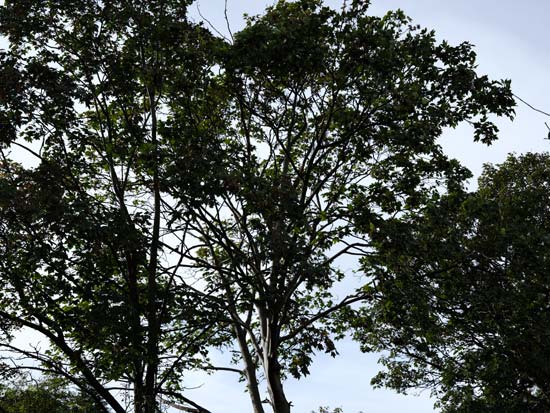
70mm
Light Fall-off
With the lens set to its maximum aperture, there is some light fall-off in the corners, requiring you to stop down by at least 3 f-stops to completely prevent it.
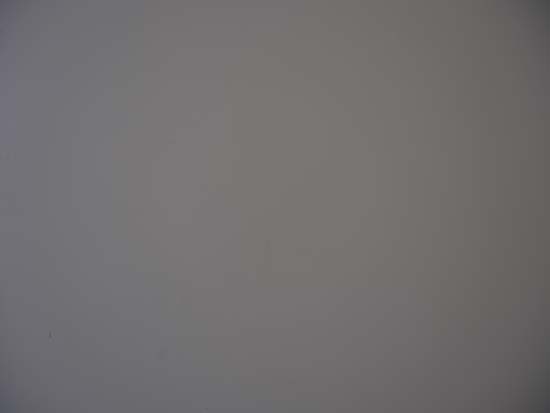
35mm

70mm
Distortion
There’s very little barrel or pin-cushion distortion evident in either the JPEG or Raw files.
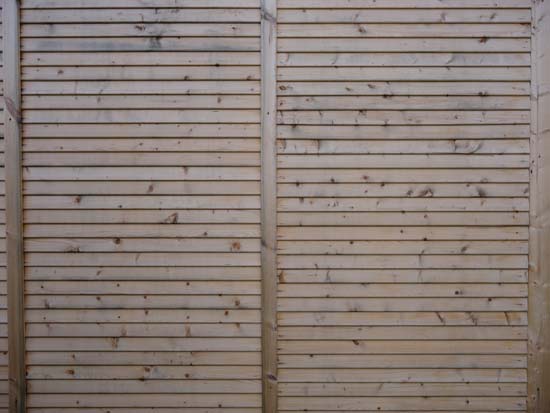
35mm
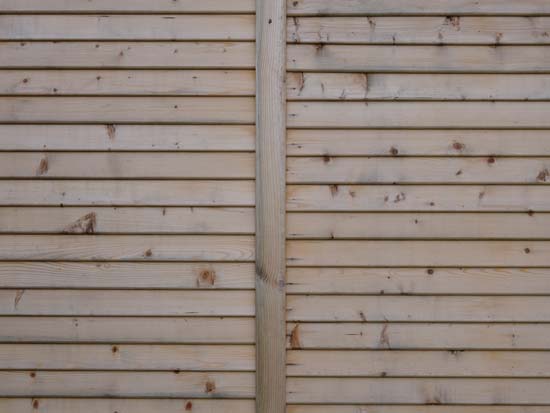
70mm
Sunstars
The Fujifilm GF 35-70mm F4.5-5.6 WR is capable of producing quite nice sunstars when stopped-down to f/22 or f/32, as shown below.
The lens is a little susceptible to flare when shooting directly into the sun, though, even with the supplied lens hood fitted.
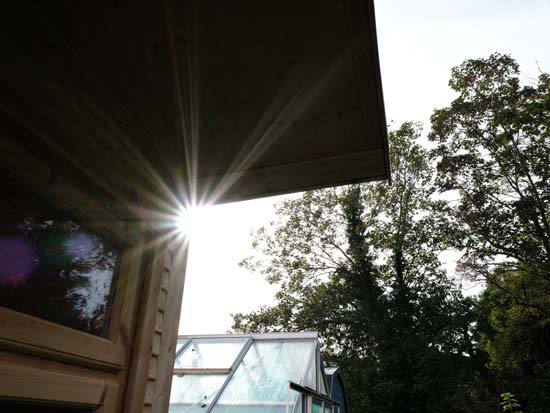
35mm
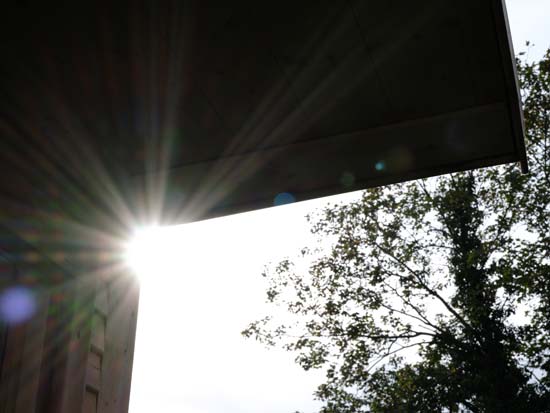
70mm
Macro
The Fujifilm GF 35-70mm F4.5-5.6 WR isn’t claimed to be a macro lens, but it does offer a useful minimum focusing distance of 35cm / 13.8″ with a maximum magnification of 0.28x. The following examples demonstrate how close you can get to your subject.




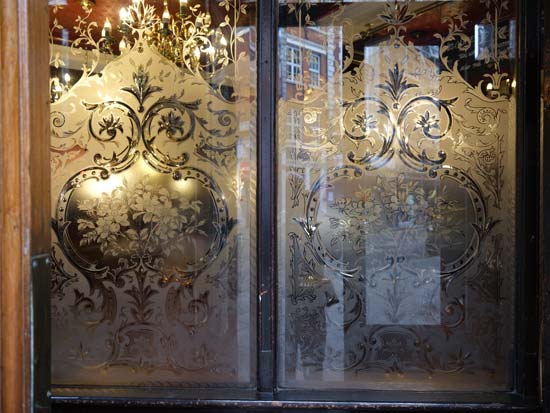


Bokeh
Bokeh is a word used for the out-of-focus areas of a photograph, and is usually described in qualitative terms, such as smooth / creamy / harsh etc.
In the GF 35-70mm F4.5-5.6 WR lens, Fujifilm have employed an iris diaphragm with 9 rounded blades, which has resulted in quite appealing bokeh for a relatively slow zoom lens.
We do realise, however, that bokeh evaluation is subjective, so we’ve included several examples below for your perusal.



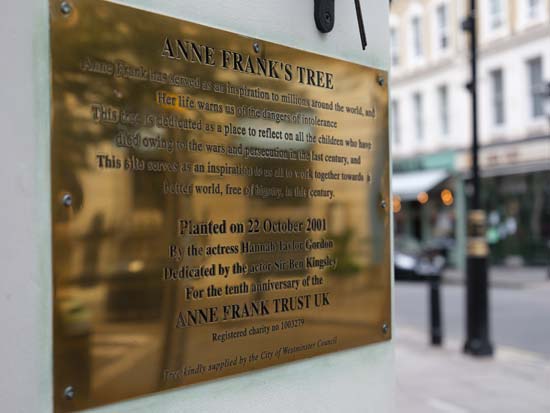
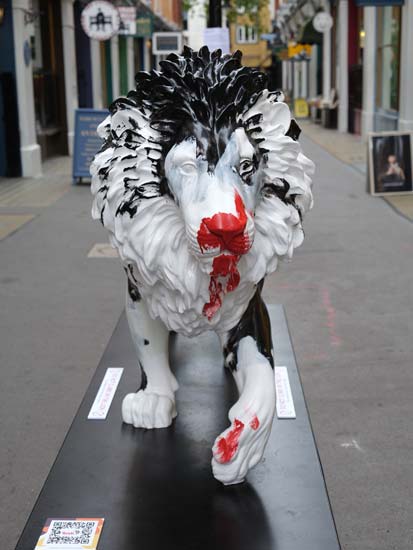


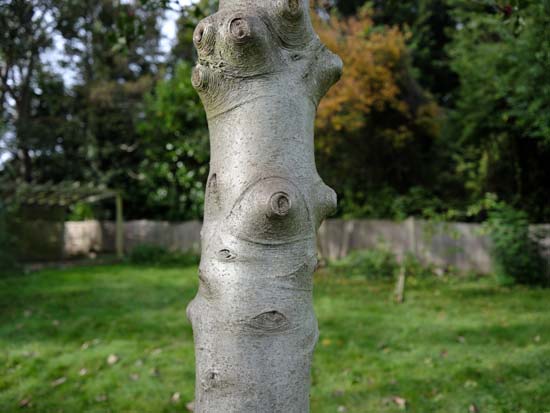
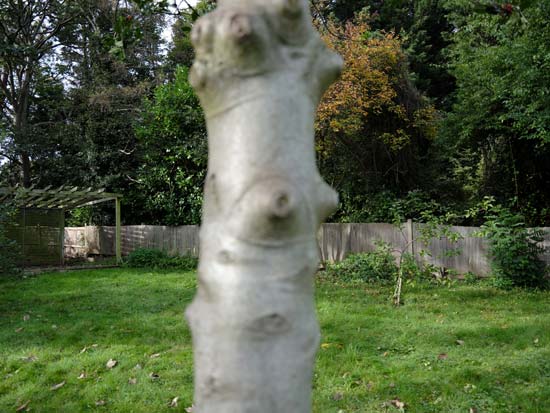
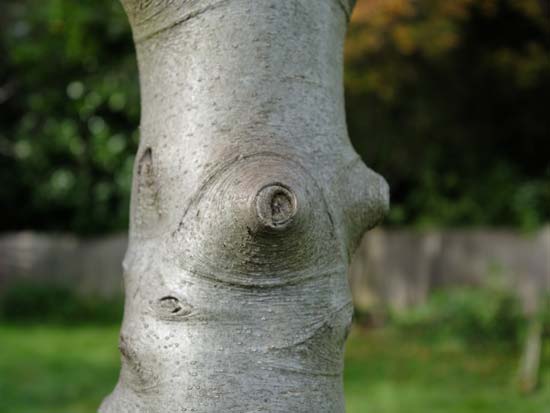
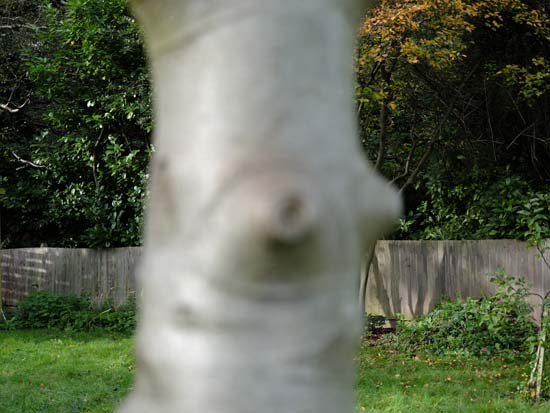
Sharpness
In order to show you how sharp this lens is, we are providing 100% crops on the following pages.


